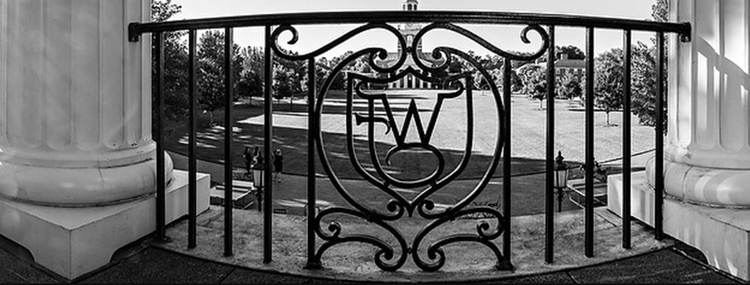Online Master’s in Clinical Mental Health Counseling
Overview
Calendar
Spring
Application Deadline:
November 1, 2025
Upcoming Start Date:
January 12, 2026
Summer
Application Deadline:
March 1, 2026
Upcoming Start Date:
May 11, 2026
Why Choose Wake Forest for Your Online Master’s Degree in Clinical Mental Health Counseling?

Our online, CACREP-accredited program is designed with working professionals in mind.

Our resources include 24/7 technical support and tutoring services.

Learn from nationally renowned counseling thought leaders.

Find and secure an internship with our network of industry partners.

Wake Forest graduates have an average pass rate of over 90% on the National Counselor Exam
Why Counseling?
Program Details
What Can You Learn in the Online Clinical Mental Health Counseling Program?
The 60-credit-hour master’s in clinical mental health counseling online program offers clinical instruction through practicum and internship experiences, as well as advanced therapeutic technique across eight areas:
- Human growth and development
- Social and cultural foundations
- Helping relationships
- Group work
- Career and lifestyle development
- Appraisal
- Research and program evaluation
- Professional orientation

Careers
Top 5 Rewarding Careers for the Online Clinical Mental Health Counseling Graduate
Curriculum

Online Master of Counseling
(60 credit hours)
The MAC program provides knowledge in eight areas: human growth and development, social and cultural foundations, helping relationships, group work, career and lifestyle development, appraisal, research and program evaluation, and professional orientation. The program also offers clinical instruction with practicum and internship experiences.
Foundation Courses
12 Credit Hours | 4 Courses
Both Clinical Mental Health Counseling and School Counseling students will take these courses.
This course is an introduction to the profession of counseling. It covers the history of counseling, as well as the roles counselors play in today’s society. It examines counseling associations and specialization areas within counseling. Professional issues such as licensure and certification of counselors are explored, too. Public policy, advocacy and other contemporary factors that impact the present and future of counseling are looked at in context and developmentally.
While the focus of the course is on introducing the counseling profession, we know that some of you are planning on the field of human services. The ties to that field will be less explicit, but you will be able to see the progression of helping services that will readily apply to human services.
Core Courses
18 Credit Hours | 6 Courses
Both Clinical Mental Health Counseling and School Counseling students will take these courses.
Clinical Mental Health Counseling Concentration Coursework
Clinical Mental Health: Beginning Practice Courses
The Counseling Practicum is a pre-internship experience designed to help students further develop their individual counseling and group work skills under careful supervision. The Practicum includes a minimum of 185 total hours, with at least 150 hours of field experience in a community/mental health or school setting plus at least 35 hours of individual/triadic and group supervision by University faculty. The 185 hours break down as follows:
150 hours of work in a school or community setting over a period of one semester (an average of 12-15 hours per week for 14 weeks). These hours should include the following activities:
- A minimum of 50 hours of direct client contact.
- A minimum of 7 hours of supervision by the site supervisor, conducted weekly, across the semester. (Approximately 30 minutes per week).
35 hours of university supervision, which includes:
- 14 hours of individual or paired supervision by a university supervisor
- 21 hours of group supervision (1 1/2 hours per week) by a university supervisor
Clinical Mental Health: Advanced Practice Courses
The internship provides students the opportunity to synthesize and utilize the theoretical, empirical, clinical and professional knowledge that you have gained thus far in the program. At your site, you will engage in the practice of clinical mental health counseling. Internship group supervision meetings will be based upon the needs, abilities and concerns of the group members and supervisor. Group and individual supervision are designed to facilitate growth in specific counseling skills, case conceptualization skills, application of counselor job responsibilities, self-awareness and professional identity development. The internship experience is intended to reflect the comprehensive work experience of a professional clinical mental health counselor.
You will complete clinical mental health counseling internship courses that together total a minimum of 600 hours of experience at a clinical mental health counseling site. During these courses, you will participate in weekly supervision at your site, as well as with your university colleagues and supervisor.
The internship provides students the opportunity to synthesize and utilize the theoretical, empirical, clinical and professional knowledge that you have gained thus far in the program. At your site, you will engage in the practice of clinical mental health counseling. Internship group supervision meetings will be based upon the needs, abilities and concerns of the group members and supervisor. Group and individual supervision are designed to facilitate growth in specific counseling skills, case conceptualization skills, application of counselor job responsibilities, self-awareness and professional identity development. The internship experience is intended to reflect the comprehensive work experience of a professional clinical mental health counselor.
You will complete clinical mental health counseling internship courses that together total a minimum of 600 hours of experience at a clinical mental health counseling site. During these courses, you will participate in weekly supervision at your site, as well as with your university colleagues and supervisor.
This course is an entry level introduction to substance abuse counseling, based on theory, research and application. Thus, it is structured to provide the student with a broad array of information drawn from theoretical formulations, research findings and practical/clinical application. The goal for this class is to facilitate your learning by introducing you to such concepts as pharmacological issues and terminology, models of addiction, theories on etiology, diagnosis and assessment, and numerous evidence-based treatment strategies.
The emphasis of the course will also be on clinical application, exploring interventions such as motivational interviewing, relapse prevention, developmental models of addiction, experiential activities, family-based interventions and 12-step self-help groups. Clinical application will be taught via small lecture, case studies, video and role play. Usually, for any given topic, conceptual and theoretical information will be presented first, followed by application via case studies, video and triadic practice. I encourage students to be actively engaged in the learning process, and participation in mutual help groups, triads, abstinence contracts, video analysis, etc. is expected.
This course highlights pertinent topics in the law and ethics related to the practice of counseling. You will be introduced to an overview and relevant guidelines in these areas. Hopefully your study will inspire you to take an active role in developing and monitoring your competence as a counselor, and demystify some of the legal and ethical issues that can feel most intimidating to counselors. The overarching goal is to help you to be a knowledgeable, careful counselor who always protects the clients or students with whom you work. In this course you will continue to build upon and grapple with some of the issues that you have learned about regarding competent, ethical and legal practice in your previous coursework.
You will have the opportunity to examine client rights and responsibilities as well as your role and duties in that area. We will explore a variety of topics including but not limited to: professional boundaries, record-keeping and documentation, confidentiality and its limits, responding to subpoenas, malpractice and negligence, informed consent and counselor competence.

Transfer Credits
Students can transfer up to six credits, subject to approval by department faculty. Evaluations are completed upon acceptance into the program by the Wake Forest University Office of Admissions. Additionally, students must submit a syllabus for the course(s) they want to transfer in. Official transcripts are required prior to registration. Courses can be submitted for transfer credit consideration only if the student received a grade of B or higher.
Please be aware that taking fewer than 4.5 hours in a semester (which is what happens when you receive transfer credit for one of the scheduled courses) may lower your eligibility for financial aid.
Admission Requirements

To qualify for the Master of Arts in Counseling program, applicants must meet the following Wake Forest University graduate admissions qualifications:
Ready for Your Next Step?
Disability Policy and Procedures
Wake Forest will consider the application of any qualified student regardless of disability on the basis of the selection criteria established by the university, which include personal and academic merit. In addition, the university endeavors to provide facilities which are in compliance with all laws and regulations regarding access for individuals with disabilities.
Accommodations in compliance with all laws and regulations are provided for students with disabilities through the Center for Learning, Access, and Student Success (CLASS).
Additionally, documentation of a disability and a request for accommodations can be sent to:
Learning Assistance Center & Disability Services.
Wake Forest University
P.O. Box 7283
Winston-Salem, NC 27109
Ph. 336-758-5929
Fax. 336-758-1991
Learn from a Nationally Recognized Faculty of Thought Leaders
Frequently Asked Questions
Tuition and Fees*

For the online graduate counseling programs in the 2024-2025 academic year, the tuition rate will be $1,700 per credit hour, for a total tuition of $102,000 (60 credits x $1,700) for the Master of Arts in Counseling program. Tuition increases are typically between 3% and 6%.
To confirm enrollment to Wake Forest University’s Online Counseling program, admitted students must pay a deposit of $250. All admission deposits are nonrefundable and must be submitted when the student accepts their offer of admission in their admissions portal. The applicable deposit is credited to the student’s charges for the semester for which the student has been accepted.
For more information about how to pay for your degree, please visit here.
*Costs are subject to change.
